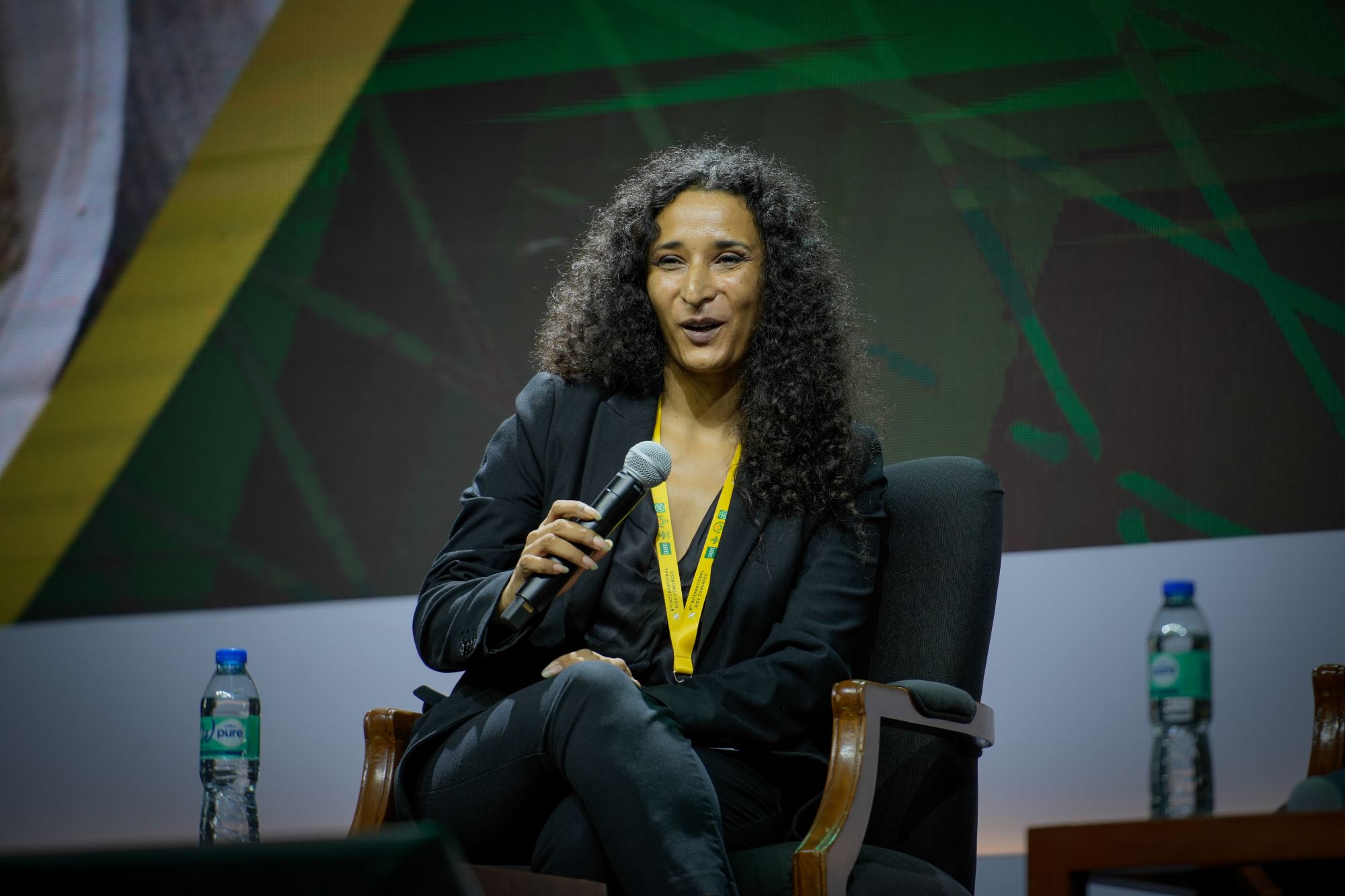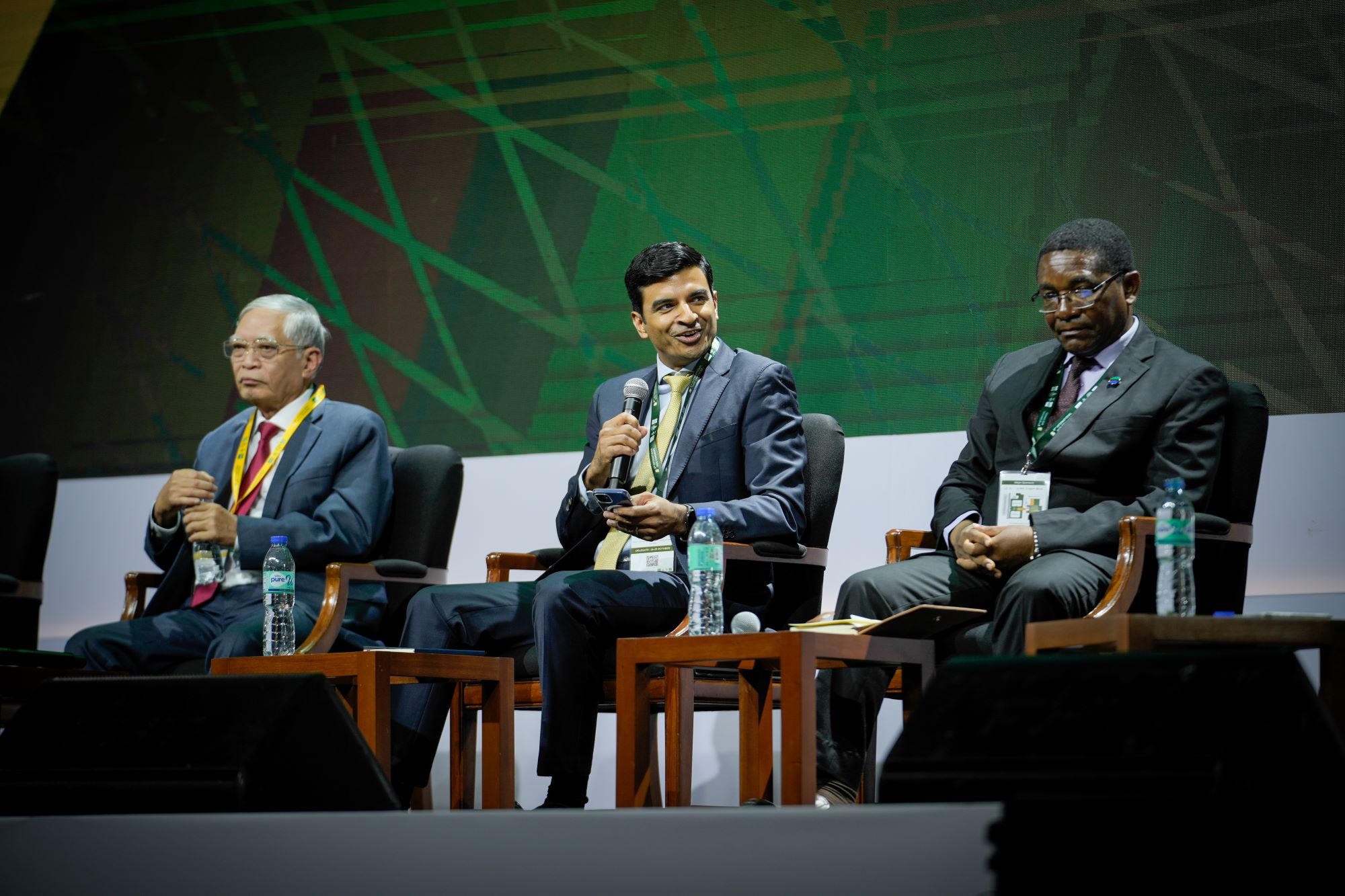Manila, Philippines (October 16, 2023) — Global rice prices are heavily affected by the emergence of disruptive events. However, effective and inclusive government policies, backed by investments in sustainable agriculture, can help improve current trends in the world rice market.
This is the key takeaway from the discussion on the challenges facing Asian and African rice-producing countries led by the United Nations Food and Agriculture Organization (FAO), government officials, and business leaders at the 6th International Rice Congress.

“International rice prices have been rising for a time now,” said Shirley Mustafa, an economist with FAO's Trade and Market Division in Rome.
Citing data in the October 2023 FAO Rice Price Update, Ms. Mustafa explained that recent market trends have been heavily influenced by multiple major global issues affecting the demand and supply sides of the industry. For example, the COVID-19 pandemic changed consumption patterns and India’s export ban on non-basmati and non-parboiled rice caused rice prices to increase significantly.
On the supply side, exporters were affected by changes in the prices of basic inputs like fertilizer forcing farmers to cultivate other crops instead of rice. Supply chains were also affected by weather conditions such as the monsoon floods that struck Pakistan in 2022.
Despite these setbacks, government officials remained optimistic about opportunities under the current economic situation.

"Cambodia has been improving research systems and technology transfer to support farmers so they can ultimately improve the quality of rice they produce," said the Undersecretary of State, Ministry of Agriculture, Forestry and Fisheries (MAFF), Kingdom of Cambodia, His Excellency Suon Serey.
The ministry is also focusing on teaching Cambodian farmers sustainable farming techniques that are now being applied at the field level. These include alternate wetting and drying (AWD) technology and sustainable rice straw management which help reduce methane gas emissions in rice fields.

Bui Ba Bong, the former Deputy Minister of Agriculture and Rural Development in Vietnam, shared that AWD and rice straw management are also practiced in their country as a part of the government’s efforts to produce one million hectares of low-carbon, high-quality rice to achieve its target of reducing methane gas emissions by 2030.
“Through AWD farmers can save water while maintaining their productivity levels and earning more,” Dr. Bui added.
The two countries’ efforts align with the 2023 World Food Day on 16 October which focuses on water as a priceless and life-saving resource.
In Africa, the Tanzanian Government highlights the importance of policies and incentives to farmers so that they can adopt sustainable practices.

“Aside from working with national, regional, and international organizations to maximize research opportunities, the government should also work downstream by enhancing farmer access to inputs,” said Geoffrey Mkamilo, director general of the Tanzania Agricultural Research Institute.
Efforts have been made by the government to subsidize fertilizer to help lower the costs of production to make farmers more competitive in the market and increase their productivity, Dr. Mkamilo explained.
”Companies need to start transformational action to achieve sustainable targets while also being accountable by observing their methodologies, value chain mapping, and monitoring and evaluation.” said Deviah Aiama, a senior manager at the World Business Council for Sustainable Development. ”Private sector actors can actively help in providing solutions to recent challenges in rice-based systems.
He also emphasized that solutions need to be accessible to smallholder farmers and ensure that farmers’ incomes are taken into account so that systems are inclusive.

“However, investing is not enough,” Mr. Aiama said. “There has to be a space for farmers in the decision-making in how resources must be utilized since they are the ones who are at the forefront of the effects of climate change.”
The panelists agreed that the future of rice is still positive but there remains a lot of work that needs to be done by government, non-government organizations, and private-sector actors.

The plenary session was conducted in line with the celebration of World Food Day 2023: Water is life, water is food. Leave no one behind” moderated by Makiko Taguchi, Agricultural Officer at FAO.

